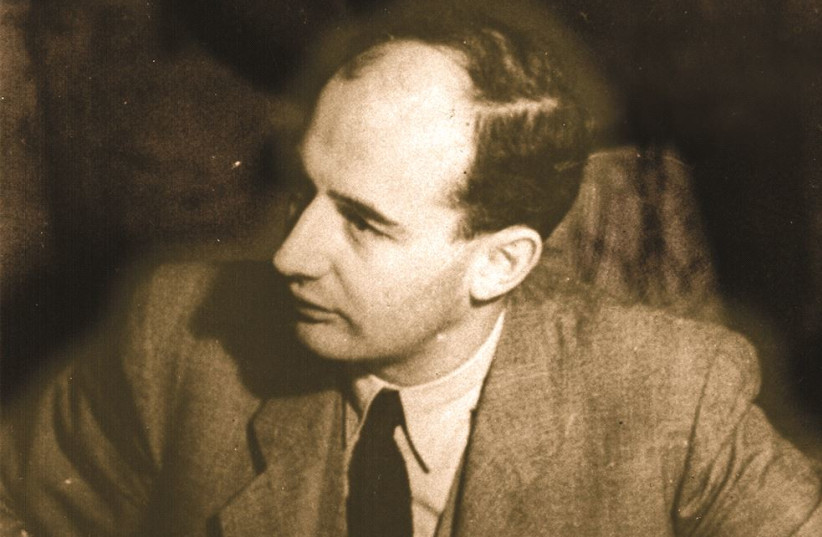On May 31, I drove with my colleague Greer Fay Cashman to Swedish Ambassador Erik Ullenhag’s residence in Herzliya to mark the 110th anniversary of Raoul Wallenberg’s birth. While it is still unclear what happened to the Swedish diplomat in Russia after he was tragically incarcerated rather than celebrated, his heroism in saving Jewish lives while he was posted in Hungary toward the end of the Holocaust is a perennial source of inspiration.
Among the speakers were Ullenhag, who gave guests a booklet containing portraits of Wallenberg done by students at the Bezalel Academy of Arts and Design in Jerusalem; Foreign Minister Yair Lapid, whose father, former justice minister Tommy Lapid, and grandmother were saved by Wallenberg; US Ambassador Tom Nides, who noted that his country had awarded rare honorary citizenship to Wallenberg, as did Canada, Australia, Israel and the city of Budapest; Hungary’s Ambassador Levente Benkő; Irwin Cotler, who chairs the Raoul Wallenberg Centre for Human Rights (RWCHR); and Chava Katz, a retired Foreign Ministry employee whom Wallenberg rescued and who attended with her son. “I can’t remember what happened an hour ago, but I’ll never forget Wallenberg,” she said.
Lapid revealed that his father, who also never forgot the Swedish diplomat, initiated the naming of a street in Tel Aviv after him that has a bronze statue of Wallenberg by Hungarian sculptor Imre Varga.
Guests were also given an interesting pamphlet published by the Swedish Institute. It recalls that in his capacity as second secretary of the Swedish diplomatic mission in Budapest, starting on July 9, 1944, Wallenberg issued protective passports – called Schutz-Pass in German – and rented safe houses to Hungarian Jews. Cotler estimates that he saved more than 30,000 lives – more than any other individual during the Holocaust.

After studying architecture at the University of Michigan, Wallenberg worked in Cape Town and then in Haifa, where he met German Jews who escaped the Holocaust, before returning to Stockholm to work for the Central European Trading Company, owned by Kálmán Lauer, a Hungarian Jew.
While watching Pimpernel Smith, a 1941 British thriller with his sister, Nina, at the British Embassy in Stockholm, Wallenberg was inspired by Cambridge archaeologist Horatio Smith (played by Leslie Howard), who saved 28 Jews from the Nazis. “When we got up from our seats,” Nina recounted, “Raoul said, ‘That is the kind of thing I would like to do!’”
Under the headline, “One man can make a difference,” the pamphlet states: “Armed only with his bravery and moral courage, Raoul Wallenberg saved tens of thousands of Jews from the Holocaust. It’s a story that has inspired the world.”
“Armed only with his bravery and moral courage, Raoul Wallenberg saved tens of thousands of Jews from the Holocaust. It’s a story that has inspired the world.”
The pamphlet
Wallenberg was imprisoned by Soviet forces in January 1945. “His fate remains unknown,” the pamphlet says. “Russia claims he died in a Soviet prison on July 17, 1947. However, many witness reports suggest he may have been alive much later.”
Wallenberg’s story is a reminder of the continuing need to fight all forms of human hatred, from racism and antisemitism to xenophobia and genocide.
In this spirit, a new report of global experts published by the Canada-based RWCHR and the US-based New Lines Institute for Strategy and Policy accuses Russia of being in breach of the 1948 Genocide Convention – a treaty adopted by the UN General Assembly after World War II – amid growing evidence that it has committed mass atrocities against the Ukrainian people. “As the international community confronts the greatest threat to the international legal order in recent history – on the political independence and territorial integrity of the Ukrainian state and the Ukrainian people – we can no longer say that we do not know,” RWCHR chair Cotler wrote. “We know and we must act.”
